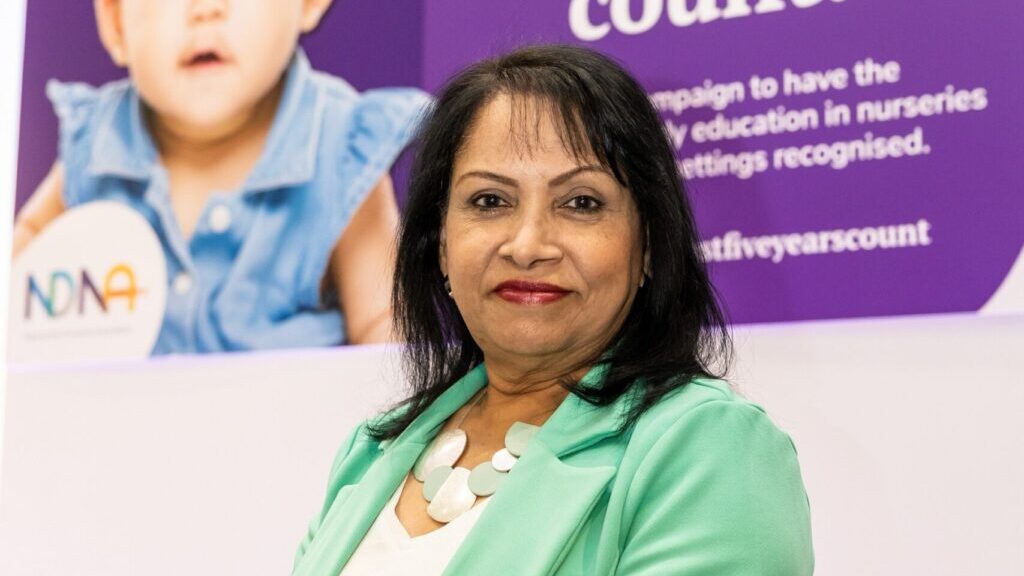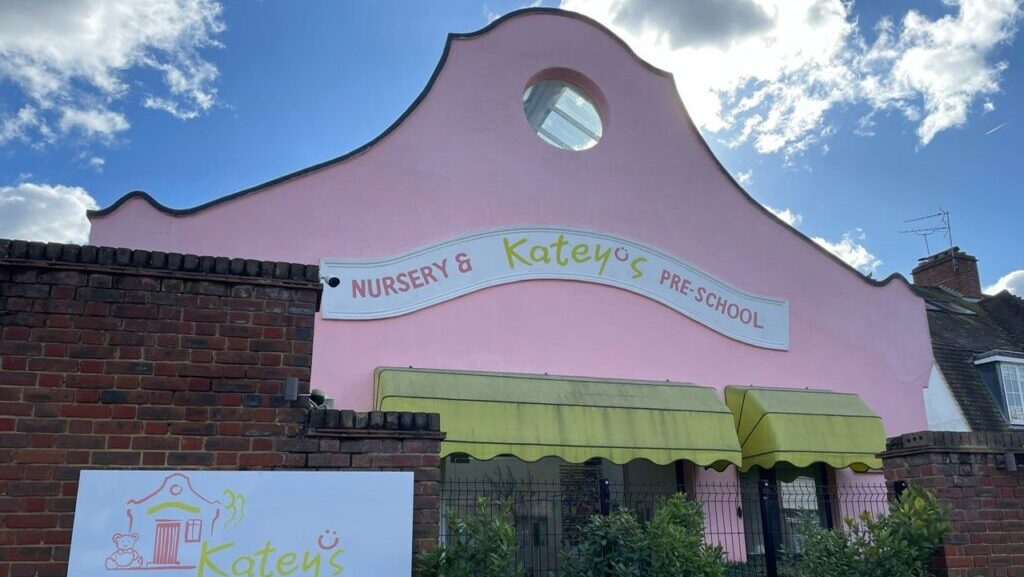The winners of the National NMT Nursery Awards reflect on what their achievement means to them
Inspection reform
Last year, National Day Nurseries Association brought together a range of early years experts to produce the Blueprint for Early Education and Care, which puts children at the heart of policies affecting their first five years. Purnima Tanuku, chief executive of NDNA, explains

One key area to get right in the Blueprint for Early Education and Care was regulatory and inspection regimes that focus on keeping children safe and supporting providers to maintain and improve quality. A clear message coming through the discussion was that inspection activities needed to be proportionate, effective and fit for purpose. Over the past five years, changes have been taking place in England, Scotland and Wales, but are these for the better for children, families and their providers?
Wales
Five years ago, Care Inspectorate Wales (CIW) and education inspectorate Estyn which had previously carried out its own independent inspections of childcare providers began inspecting jointly. Since then there have been changes to the legal framework, curriculum and national minimum standards, so the Welsh government commissioned a review into joint inspections by the Learning Partnership.
Overall its conclusions were positive but the report did highlight several recommendations for improvement which the two inspectorates are currently considering. Once CIW and Estyn have analysed the report, they will be developing their response to the recommendations over the coming months.
Speaking to providers, we welcomed the reduction in numbers of inspections but recognised that nurseries still faced inconsistencies with the new system. The recommendation of regular mandatory training for inspectors would help to reduce these anomalies. It would be useful for the inspection framework to align with the ambitions of Early Childhood, Play Learning and Care (ECPLC) in Wales to reduce unnecessary replication for staff.
NDNA will work with the two inspectorates to make sure any new inspection regime supports ongoing quality improvement, making sure the sector is fully supported and consequently, resulting in better outcomes for children.
Scotland
In Scotland, Professor Ken Muir published his wide-ranging report into educational reform in March 2022, starting the conversation about putting regulation on a similar trajectory to the joint inspections of Wales. One of his recommendations was that the inspection process for early learning and childcare settings must be looked at closely. He considered that the existing process of two inspections, from two different bodies, was too burdensome on the sector.
As a result of this report, the Scottish government asked the Care Inspectorate (Scotland) and Education Scotland – the two care and education regulatory bodies – to work together to develop a single shared inspection framework. The new shared inspection framework for Scotland is now being brought forward for providers, inspectors and parents to familiarise themselves with it ahead of implementation.
However, there are concerns about the new framework. If the two inspectorates continue to carry out their own inspections separately, and keep some of the unnecessary differences in their own approaches, there will be a missed opportunity for genuine reform.
If the shared framework leads to more confusion, less clarity and greater burdens for providers it’s hard to see how it will support quality improvement or help families and providers. Any change in regime naturally means providers have to review their policies and procedures, and how they operate and train staff. This work is essential but will be an unnecessary effort if the changes don’t make the new inspection regime better.
We will watch this situation closely to make sure that any new system which is put in place is reviewed regularly, always going back to the Blueprint principle; regulatory frameworks must be fit for purpose and support providers to focus on improving quality. This includes reducing unnecessary burdens on nurseries.
England
Finally, in England the debates around reform of Ofsted have been growing in recent years. We know that any form of inspection is stressful, but while many people tell us that their interactions with Ofsted were positive, too many were having negative experiences.
The new HMCI Sir Martyn Oliver signalled a change in approach from day one and Ofsted responded to the findings surrounding the tragic death of Ruth Perry. But as an Ofsted representative said at our NDNA Talk event last month for members in England, the case for change had been building for much longer.
Over the summer we saw Ofsted’s largest ever consultation event – The Big Listen – to which 51% of respondents answered questions about early years. Ofsted listened to staff from across all jurisdictions, families, parents and children. Meanwhile a new Labour government was voted in on the promise of reforming Ofsted.
The new government acted quickly with an announcement that from September, schools would no longer be subject to one-word judgements. While early years will follow suit, for now providers in the private, voluntary and independent sector and childminders will still receive those judgements for this academic year. By including maintained nurseries and school-run nursery classes in the changes for school inspection, we currently have a two-tier approach which needs to be resolved as soon as possible.
The results of The Big Listen were published in September, an honest and wide-reaching analysis of what was wrong with the inspectorate and how it would move forward to put it right. Ofsted didn’t try to hide the scale of the challenge it faced and that included the lack of trust which many in the sector placed in Ofsted inspectors.
The findings were also clear that one-word judgements don’t help parents of early years children understand what happens in settings. So it confirmed consultations will take place with the sector this year to set out how they will be replaced with report cards, although there hasn’t been much detail revealed yet.
Ofsted representatives who spoke at our NDNA Talk event confirmed there would be a ‘report card’ but this will take time to develop, with consultations including parents, professionals and early years bodies. There will be a top line judgement about whether regulations have been met or not, below which will sit the more detailed report which highlights different areas of practice.
Providers have spoken about the consequences of the inspection judgement which can result in their funding being removed and their business no longer being viable. Ofsted is aware of this and aims to address this anxiety. We have also called for consistency across local authorities to ensure fairness and to give providers a chance to implement improvements where needed. At our recent event Ofsted also told providers that it will focus on inspections being consistent across the sector and a complaints process which is transparent. Some of these reforms have already been put in place and we will closely monitor the effect of these changes.
It’s clear that across the UK we need to end up with systems which work for everyone. Hopefully the reform journey in England, Scotland and Wales will mean regulatory and inspection bodies are more willing to work in partnership with providers and staff, and consider all of a setting’s circumstances, as well as issues facing the sector more broadly. This is the best way towards the continuous improvement we all want to see for our youngest children.
Whether providers receive one inspection or two from different regulatory bodies, the regulation must be proportionate, effective and fit for purpose, with children’s wellbeing at its heart.
Latest Features
Stephanie Mensah, co-founder of Bibinee Dolls, explores the importance of diversity in early years education and asks if we are…
We find out how Chalk Nursery Group worked with managed technologies firm Active8 to make life easier for its nursery…




